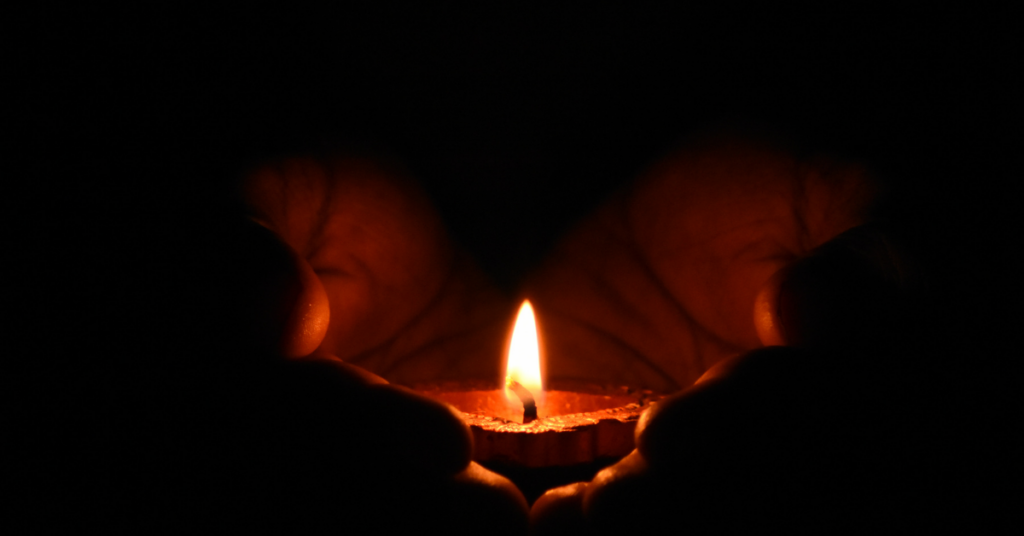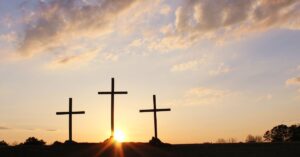When I graduated as an engineer, I was inducted into the Order of the Engineer. As a part of that induction ceremony, we take an oath, much like the Hippocratic Oath of the medical world. The oath is for engineers to “do no harm” by conducting themselves with honesty and integrity. The pledge states:
I am an Engineer. In my profession I take deep pride. To it I owe solemn obligations. As an Engineer, I pledge to practice integrity and fair dealing, tolerance and respect; and to uphold devotion to the standards and the dignity of my profession, conscious always that my skill carries with it the obligation to serve humanity by making the best use of the Earth’s precious wealth. As an Engineer, I shall participate in none but honest enterprises. When needed, my skill and knowledge shall be given without reservation for the public good. In the performance of duty and in fidelity to my profession, I shall give my utmost.
After taking the oath, we were given a ring made of stainless steel that is to be worn on the fifth finger of the engineer’s writing hand. It was to serve as a reminder of the consequences of engineering decisions, and the weight of doing engineering with honesty and integrity because people may suffer from engineering mistakes. Then my professor told us about the Tacoma Narrows Bridge collapse in 1940.
It was a suspension bridge that spanned 2,800 feet across the Puget Sound in Washington State. Due to a bad engineering design of the bridge, wind gusts of 42 mph caused a series of torsional oscillations whose amplitude steadily increased until the bridge broke apart. Luckily, the bridge had been closed to traffic so there were no deaths or injuries.
Another such disaster occurred in 1981. Two suspended walkways inside the Hyatt Regency hotel in Kansas City collapsed during a tea dance gathering, killing 114 and injuring 216. There had been a design change to the support system that wasn’t not structurally analyzed.
Instead of one continuous steel rod bolted to the ceiling bearing the weight of the walkways, the steel rod was split into two sections. This shifted the weight bearing responsibility of both platforms to a nut and a welded joint, which far exceeded its specifications. The walkways even fell during construction, yet no one revisited the design to verify it was safe.
Sometimes it isn’t a flawed design to blame for tragedy, but flawed engineering inspections. Thankfully the lack of quality engineering inspections on the I-40 bridge between Arkansas and Tennessee was discovered before a tragic disaster occurred. A crack in the span had been overlooked, at best, or ignored, at worst, for several years. Now it is a massive split between the beams of the bridge. This one hits close to home since I had driven over that bridge just two weeks before it was shut down to all traffic.
And now the nation stands watching and grieving for those who have suffered in the tragic Surfside Condo Tower collapse in Miami. Investigations are still underway, and probably will be for a long time. It appears this might have been a fault of both poor design and poor inspection, as well as poor response to the inspection reports.
While we naturally want to assign blame and hold accountable those who failed to look out for the safety of the public for whatever reason, I’m sure many – especially those directly affected by such tragedies – will want to hold God accountable. How could He allow these things to happen? And where is He when they do?
There are a lot of different academic and theological ways we could address those two questions. But to the person who is sitting in the heap of ashes and pile of heartache, let me just say, it is awful. When your life truly hits that moment that causes you to the depth of your soul to ask that question, it just feels impossibly hard. It feels like you can’t even take another next step. It becomes difficult to even take your next breath. And in the middle of that we ask, “What kind of God would allow this?”
So let’s consider what kind of God does allow suffering and tragedy. The atheist’s god of science and nature would have no one to blame at all for human suffering. In fact, suffering is the very thing that drives the origin of all life. Evolution is the pitting of the strong against the weak in an epic struggle for survival. The species are propelled forward through this conflict. Suffering then is simply the mechanism that improves living things. There is no answer for our suffering, other than it must happen.
In Islam, the god Allah is very distant and unknowable. Each person is working on their own salvation by showing their devotion to the Quran. Yet when they describe paradise in the afterlife, it doesn’t even include the presence of Allah. There is no comfort or consolation from Allah, no sympathy for the condition of human suffering. Therefore, any suffering and hardship you endure is your own lack of devotion to Allah and the Quran.
The Eastern religions, whether Buddhism, Hinduism, and so on, are all karma driven. They believe that if you do good, then good things will return to you. If you do bad, then bad things return to you. Therefore, any suffering and hardship you endure is your own fault.
Even those who do not follow the Eastern religions still tend to have this karmic view of suffering. We know Job’s friends viewed his suffering through that lens. When they saw his children, crops, livestock, servants, property, and health all get destroyed, they wondered what kind of secret, dark sin Job must have had. The disciples had this same mindset when they asked Jesus in John 9 if the man had been born blind because of his sin or his parents’ sin.
As we so often see and experience ourselves, our suffering is not always a direct result of our sin. There are actually lots of different reasons why we may suffer (admittedly, many times it is a result of sin in some way – sin is not without consequences). However, Jesus said that our sin condition doesn’t always have a connection to the amount of suffering we may experience. He said the blind man was born that way, not because of anyone’s specific sin, but so the works of God could be revealed in him.” (Luke 9:3). He also said, “For God makes His sun rise on the evil and on the good, and sends rain on the just and on the unjust.” (Matthew 5:45).
Some may think this is even more cruel of God, to allow the “innocent” suffering, those who appear the least deserving of tragedy. But we must consider, not how much we suffer here, but how does God respond to our suffering. The question isn’t just what kind of God would allow suffering, but what kind of response does God have to our suffering?
He responds with compassion. We see the heart of Jesus for us in Matthew 11:29, “Take my yoke upon you, and learn from me, for I am gentle and lowly in heart, and you will find rest for your souls.” His heart is gentle and lowly. It is filled with compassion and tenderness toward us. In several places throughout the Gospels, Jesus is described as having compassion on people, for the widow burying her son, for the leper begging to be made clean, for the crowds gathered to Him for healing, for the entire nation of Israel as He looked over Jerusalem. God weeps for the suffering of this world.
He responds with love. The Christian God came down to suffer along with us, to suffer more than any other human ever would, in order to redeem His creation. God’s response to suffering is found in the love He expressed on the cross. No other religion offers the kind of love that Jesus offered when he laid down his life on the cross. No other religious leader was willing to die for their followers to be saved. No other god would sacrifice himself for his creation. It was out of His love for us that He gave up His life so that we might have life, and have it abundantly and eternally.
He responds with peace. One of the names of God is Jehovah-Shalom, the LORD is peace. When our world and life seem to be spiraling out of control, it is the Christian God who gives us peace. Jesus said in John 14:27, “Peace I leave with you; my peace I give to you. Not as the world gives do I give to you. Let not your hearts be trouble, neither let them be afraid.” The prophecy of Jesus’ birth in Isaiah 9:6 include the Prince of Peace as one of His names.
Isaiah 26:3 says, “You keep him in perfect peace whose mind is stayed on you, because he trusts in you.” And Romans 5:1 states, “Therefore, since we have been justified by faith, we have peace with God through our Lord Jesus Christ.” When we put our faith and trust in God, He pours out His peace on us to carry us through these trials. He responds to our suffering in the way that our hearts need.
Cathryn Sterling
For more information on engineering disasters:
https://www.britannica.com/topic/Tacoma-Narrows-Bridge
https://en.wikipedia.org/wiki/Hyatt_Regency_walkway_collapse
https://www.cbsnews.com/news/i-40-bridge-major-crack-tennessee-arkansas/
https://news.yahoo.com/damage-surfside-condo-tower-got-235000918.html




